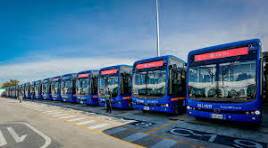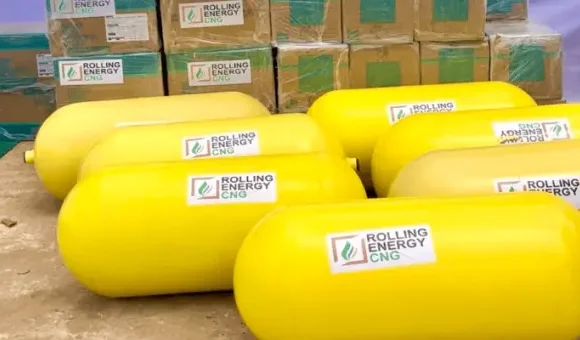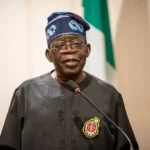Oando and Lagos State Government to Deploy 5,000 Electric Buses
Electric Buses
Oando Plc, in partnership with the Lagos State Government, is set to deploy 5,000 electric commercial buses in Lagos. This initiative aims to reduce carbon emissions and promote cleaner energy solutions in public transportation.
Commitment to Cleaner Energy Solutions
The Group Chief Executive Officer of Oando Plc, Wale Tinubu, disclosed this development during an interview with CNBC Africa on the sidelines of the World Economic Forum held in Davos, Switzerland. Tinubu stated that the decision to invest in electric vehicles (EVs), particularly for public transport, aligns with Oando’s commitment to adopting cleaner energy as part of its energy transition strategy.
According to Tinubu, the project represents a significant step towards reducing carbon emissions, highlighting the company’s efforts to embrace energy solutions that are sustainable and environmentally friendly.
Africa’s Energy Challenges and the Need for a “Just Transition”
Tinubu emphasized the importance of a “just transition” for Africa, arguing that while decarbonisation is critical, it must be balanced with the continent’s unique energy challenges. He explained that Africa contributes only about 3% of global emissions but suffers disproportionately from the impacts of climate change.
He noted that with 45% of Africa’s population lacking access to electricity or energy products, the continent cannot completely abandon its fossil fuel resources for cleaner energy. Instead, Africa must adopt a transitional energy approach, utilizing natural gas as a bridge while expanding renewable energy solutions.
EV Deployment as a Carbon Capture Strategy
Oando Plc, as a major player in Nigeria’s oil and gas industry, is leveraging EV deployment as part of its carbon capture strategy. Tinubu explained that the company’s approach ensures a balance between reducing carbon emissions and addressing the continent’s energy needs.
“For every bit of carbon we introduce into the environment, we are also taking steps to remove it through carbon capture techniques,” Tinubu said. He added that EVs are a significant part of Oando’s clean energy offerings and will play a critical role in reducing emissions in Nigeria’s transport sector.
For every bit of carbon we introduce into the environment, we are also taking steps to remove it through carbon capture techniques.”
— Wale Tinubu, Group CEO, Oando Plc.
The Electric Bus Initiative
Speaking specifically on the electric bus initiative, Tinubu revealed that Oando plans to use natural gas to generate electricity for powering these buses. He stressed the importance of transitioning Nigeria’s public transport system from diesel or petrol to electric vehicles, given that transport contributes 10% of global emissions.
“This project, which we are piloting in collaboration with the Lagos State Government, aims to deploy up to 5,000 electric buses across Lagos. By doing this, we can potentially reduce emissions from public transport by 5%,” Tinubu stated.
Conclusion
The partnership between Oando Plc and the Lagos State Government to deploy 5,000 electric buses is a forward-thinking step towards tackling climate change and addressing Nigeria’s energy challenges. This initiative not only reflects Oando’s commitment to clean energy but also serves as a blueprint for balancing environmental sustainability with the continent’s energy needs.
If successful, this project could set a precedent for other states and countries in Africa to adopt similar measures, contributing significantly to global decarbonisation efforts.











